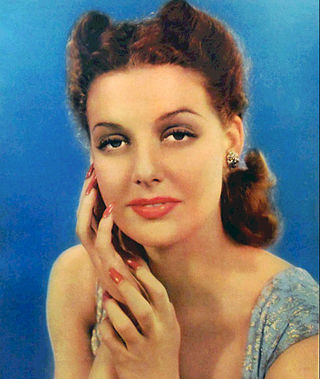
Clara Lou "Ann" Sheridan was an American actress and singer. She is best known for her roles in the films San Quentin (1937) with Humphrey Bogart, Angels with Dirty Faces (1938) with James Cagney and Bogart, They Drive by Night (1940) with George Raft and Bogart, City for Conquest (1940) with Cagney and Elia Kazan, The Man Who Came to Dinner (1942) with Bette Davis, Kings Row (1942) with Ronald Reagan, Nora Prentiss (1947), and I Was a Male War Bride (1949) with Cary Grant.
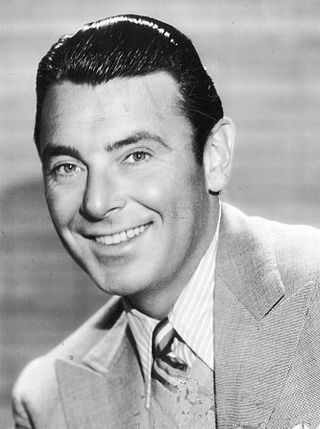
George Brent was an Irish-American stage, film, and television actor. He is best remembered for the eleven films he made with Bette Davis, which included Jezebel and Dark Victory.

Dean Jagger was an American film, stage, and television actor who won the Academy Award for Best Supporting Actor for his role in Henry King's Twelve O'Clock High (1949).
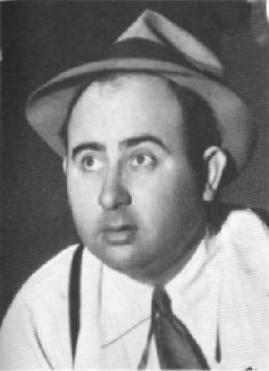
Norman Rae Taurog was an American film director and screenwriter. From 1920 to 1968, Taurog directed 180 films. At the age of 32, he received the Academy Award for Best Director for Skippy (1931), becoming the youngest person to win the award for eight and a half decades until Damien Chazelle won for La La Land in 2017. He was later nominated for Best Director for the film Boys Town (1938). He directed some of the best-known actors of the twentieth century, including his nephew Jackie Cooper, Spencer Tracy, Mickey Rooney, Judy Garland, Deanna Durbin, Fred Astaire, Gene Kelly, Deborah Kerr, Peter Lawford, Dean Martin, Jerry Lewis, Elvis Presley and Vincent Price. Taurog directed six Martin and Lewis films, and nine Elvis Presley films, more than any other director.
AFI's 100 Years...100 Stars is the American Film Institute's list ranking the top 25 male and 25 female greatest screen legends of American film history and is the second list of the AFI 100 Years... series.
Penelope Dale Milford is an American stage and screen actress. She is best known for her role as Vi Munson in Coming Home (1978) for which she was nominated for an Academy Award for Best Supporting Actress. She also originated the role of Jenny Anderson in the Broadway musical Shenandoah, for which she was nominated for a Drama Desk Award in 1975.

The Golden Boot Awards were an American acknowledgement of achievement honoring actors, actresses, and crew members who made significant contributions to the genre of Westerns in television and film. The award was sponsored and presented by the Motion Picture & Television Fund. Money raised at the award banquet was used to help finance various services offered by the Fund to those in the entertainment industry.

To the Last Man is a 1933 American pre-Code Western film directed by Henry Hathaway and starring Randolph Scott and Esther Ralston. The screenplay by Jack Cunningham was based on the 1921 novel of the same name by Zane Grey. The novel, optioned to Paramount Pictures, was previously made as Victor Fleming's 1923 silent film version of the same title. The supporting cast of Hathaway's version features Noah Beery Sr., Jack La Rue, Buster Crabbe, Barton MacLane, Fuzzy Knight, Gail Patrick, and, in uncredited roles, Shirley Temple and John Carradine.
Whip Wilson was an American cowboy film star of the late 1940s and into the 1950s, known for his roles in B-Westerns.

Come On Marines! is a 1934 American pre-Code drama film directed by Henry Hathaway and starring Richard Arlen and Ida Lupino.
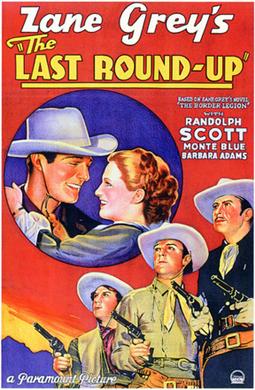
The Last Round-Up is a 1934 American Pre-Code Western film directed by Henry Hathaway and starring Randolph Scott, Monte Blue, and Barbara Fritchie.
Happening '68 was a rock-and-roll variety show produced by Dick Clark Productions, which aired on the American Broadcasting Company (ABC) network. The show followed American Bandstand on Saturday afternoons. Happening '68 premiered on January 6, 1968 and was popular enough that ABC added a weekday spin-off. It's Happening ran on Mondays through Fridays from July 15, 1968 through October 25, 1968. When 1968 ended, Happening '68 became just Happening, which was canceled in October 1969.

Frontier Gal is a 1945 American Western film directed by Charles Lamont and starring Yvonne De Carlo and Rod Cameron.
Notable American Women, 1607–1950: A Biographical Dictionary is a three-volume biographical dictionary published in 1971. Its origins lay in 1957 when Radcliffe College librarians, archivists, and professors began researching the need for a version of the Dictionary of American Biography dedicated solely to women.
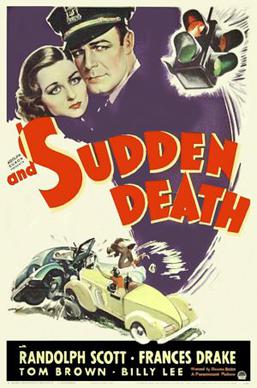
And Sudden Death is a 1936 American drama film directed by Charles Barton and written by Joseph Moncure March. The film stars Randolph Scott, Frances Drake, and Tom Brown; with supporting actors Billy Lee, Fuzzy Knight, Terry Walker and Porter Hall. The film was released on June 16, 1936, by Paramount Pictures.
She Came to the Valley is a western-genre film, shot in 1977 and released in 1979. Directed by Albert Band, it stars Ronee Blakley, Scott Glenn, Freddy Fender, and Dean Stockwell. It is based on a novel by Cleo Dawson.
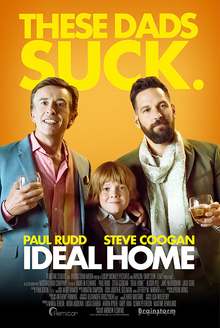
Ideal Home is a 2018 American comedy-drama film, written and directed by Andrew Fleming and starring Steve Coogan, Paul Rudd, Alison Pill, Jake McDorman, and Jack Gore.

Wanderer of the Wasteland is a 1935 American Western film directed by Otho Lovering and written by Stuart Anthony. It is based on the 1923 novel Wanderer of the Wasteland by Zane Grey. The film stars Dean Jagger, Gail Patrick, Edward Ellis, Monte Blue, Buster Crabbe and Trixie Friganza. The film was released on September 9, 1935, by Paramount Pictures.

Knight of the Plains is a 1938 American Western film directed by Sam Newfield and written by Fred Myton. The film stars Fred Scott, Al St. John, Marion Weldon, John Merton, Richard Cramer, Frank LaRue and Lafe McKee. The film was released on May 7, 1938, by Spectrum Pictures.

The Virginia Women's Monument is a state memorial in Richmond, Virginia commemorating the contributions of Virginia women to the history of the Commonwealth of Virginia and the United States of America. Located on the grounds of the Virginia State Capitol, the monument is officially titled Voices from the Garden: The Virginia Women's Monument and features life-sized bronze statues of eleven Virginia women placed in a small granite plaza.














